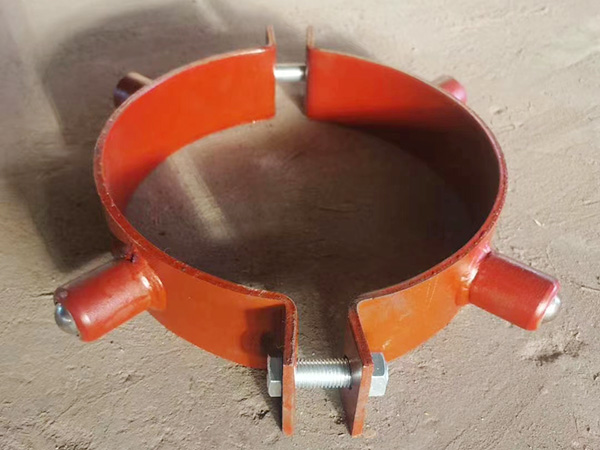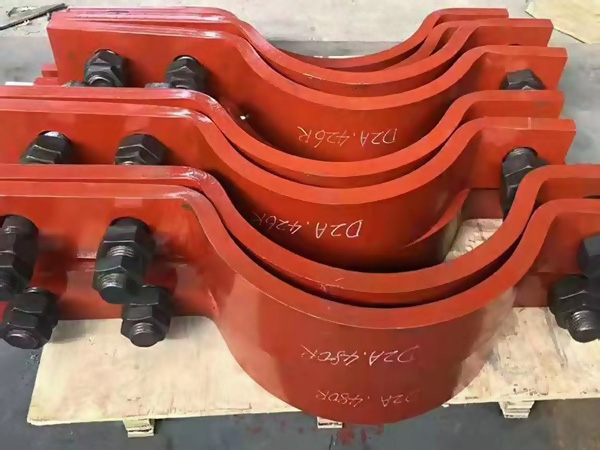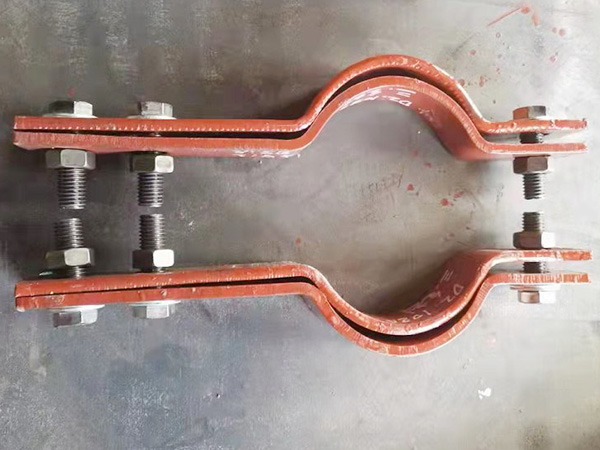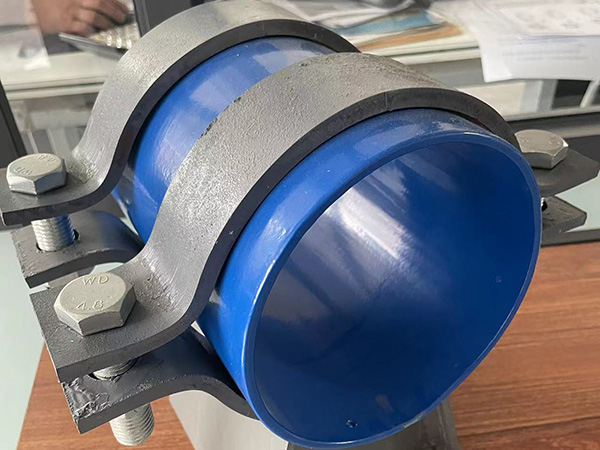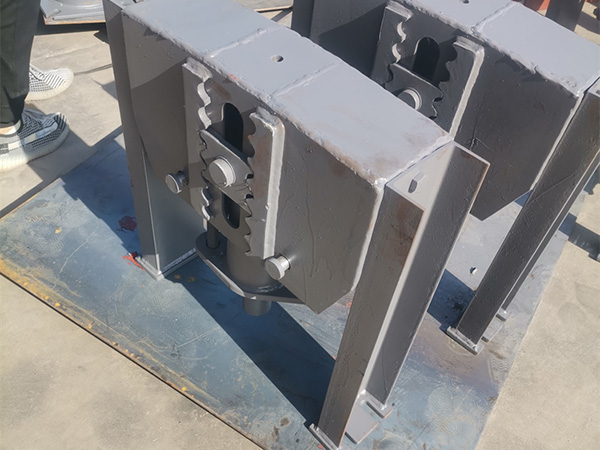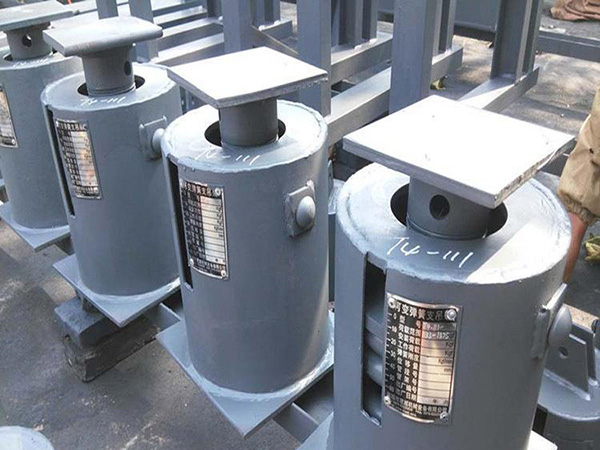Exploring the Advantages of Advanced Pipeline Insulation Supports in Thermal Management
Author:Mingde Time:2025-06-14 16:31:40 Click:62
I. Introduction
(A) Importance of Thermal Management in Pipeline Systems
In fields such as industrial production and construction, thermal management of pipeline systems directly impacts energy utilization efficiency, equipment service life, and system operational stability. With the continuous improvement of energy-saving standards and the increasing demand for extreme operating conditions like high and low temperatures, advanced insulation technology has become a core element in safeguarding pipeline performance.
(B) Core Value of Advanced Pipeline Insulation Supports
Advanced pipeline insulation supports significantly enhance thermal management efficiency through material innovation, structural optimization, and intelligent design. They effectively reduce heat loss, prevent condensation, and lower operation and maintenance costs, driving pipeline systems towards high efficiency and intelligence.
II. Core Technological Advantages of Advanced Pipeline Insulation Supports
(A) Application of High-Performance Insulation Materials
Novel Composite Insulation Materials: Utilizing low thermal conductivity materials such as nano-aerogels and vacuum insulation panels to significantly reduce heat conduction and improve insulation performance.
Integration of Phase Change Energy Storage Materials: Leveraging the heat storage and release characteristics of phase change materials to dynamically regulate pipeline temperature fluctuations and maintain stable medium temperatures.
Smart Temperature Control Material Characteristics: Materials with temperature-sensitive response functions can automatically adjust insulation performance based on environmental temperature changes, achieving precise temperature control.
(B) Innovative Structural Design
Multi-Layer Composite Insulation Structure: Forming a gradient thermal resistance through the superposition of multi-layer heterogeneous materials to effectively block thermal bridge effects and reduce heat transfer.
Adaptive Adjustment Support System: Modular and adjustable structural designs accommodate different pipe diameters and thermal expansion needs, reducing the impact of thermal stress on pipelines.
Fluid Dynamics Optimization Design: Special shape designs can reduce wind resistance on pipeline surfaces, decrease convective heat transfer, and further enhance insulation effects.
(C) Intelligent Monitoring and Control Technology
Sensor Integration: Built-in temperature and pressure sensors enable real-time monitoring of pipeline thermal management data, providing a basis for precise regulation.
Remote Monitoring and Early Warning: Leveraging IoT technology for real-time data upload, automatically alerting when abnormalities occur, and providing solutions.
Intelligent Control System: Automatically adjusting insulation parameters based on monitoring data to dynamically optimize thermal management efficiency and achieve intelligent operation.
III. Enhanced Thermal Management Effects of Advanced Insulation Supports
(A) Efficient Heat Control
Significantly reducing heat conduction losses and effectively improving energy utilization efficiency.
Precisely maintaining pipeline medium temperatures and reducing performance degradation caused by temperature differences.
(B) Prevention of Condensation and Corrosion
Avoiding pipeline surface temperatures below the dew point through efficient insulation to eliminate condensation and reduce corrosion risks.
Reducing thermal stress and corrosion impacts, extending pipeline service life, and lowering maintenance frequency and replacement costs.
(C) System Energy-Saving Optimization
Reducing heating or refrigeration equipment loads to achieve lower energy consumption throughout the entire operational cycle.
Utilizing intelligent control to balance energy consumption, optimize resource allocation, and improve overall system economy.
IV. Application Scenarios of Advanced Pipeline Insulation Supports
(A) Industrial Sector
Petrochemical Industry: Optimizing thermal management for high-temperature steam pipelines and low-temperature liquefied gas pipelines.
Energy and Power Industry: Ensuring stable temperature control for steam pipe networks in thermal power plants and cooling systems in nuclear power plants.
Manufacturing Production Lines: Achieving precise heat regulation for pipelines connecting chemical reactors and heating equipment.
(B) Construction and Municipal Engineering
Central Heating Systems: Improving heating efficiency and reducing heat loss in pipe networks.
Air Conditioning and Refrigeration Systems: Preventing cold loss in refrigerant pipelines and lowering operational costs.
Water Supply and Drainage Systems: Avoiding pipeline condensation and thermal expansion/contraction issues caused by temperature differences.
(C) Special Environmental Engineering
Offshore Platform Pipelines: Ensuring stable thermal management performance while resisting salt spray corrosion.
Polar Low-Temperature Pipelines: Maintaining the fluidity of pipeline media in extremely low-temperature environments.
Aerospace and Scientific Research Equipment: Meeting the special pipeline system requirements for high-precision temperature control.
V. Selection and Implementation Strategies for Advanced Pipeline Insulation Supports
(A) Demand Analysis and Selection Key Points
Operating Condition Parameter Assessment: Selecting appropriate materials and structural types based on temperature, pressure, and medium characteristics.
Performance Index Comparison: Focusing on core parameters such as thermal conductivity coefficients, temperature resistance ranges, and intelligent monitoring functions.
(B) Installation and Commissioning Specifications
Professional Installation Process: Ensuring seamless connection between supports, pipelines, and insulation layers to fully leverage insulation effects.
Intelligent System Commissioning: Calibrating sensor data, testing remote monitoring and automatic control functions to ensure stable system operation.
(C) Cost-Effectiveness and Compliance
Full Life Cycle Cost Analysis: Balancing initial investment with long-term energy-saving benefits to maximize cost-effectiveness.
Compliance with Standards and Certifications: Ensuring products meet domestic and international thermal management-related standards and certification requirements such as ISO and GB.
VI. Conclusion and Future Trends
Summary of Core Advantages of Advanced Insulation Supports
Advanced pipeline insulation supports demonstrate significant advantages in thermal management through material, structural, and technological innovations, providing strong support for the efficient operation of pipeline systems.
 Hot Products
Hot Products
 Contact Us
Contact Us
Contact:
Mobile:+86 +86 19133378808
Website:mingdepipe.com
Address:


